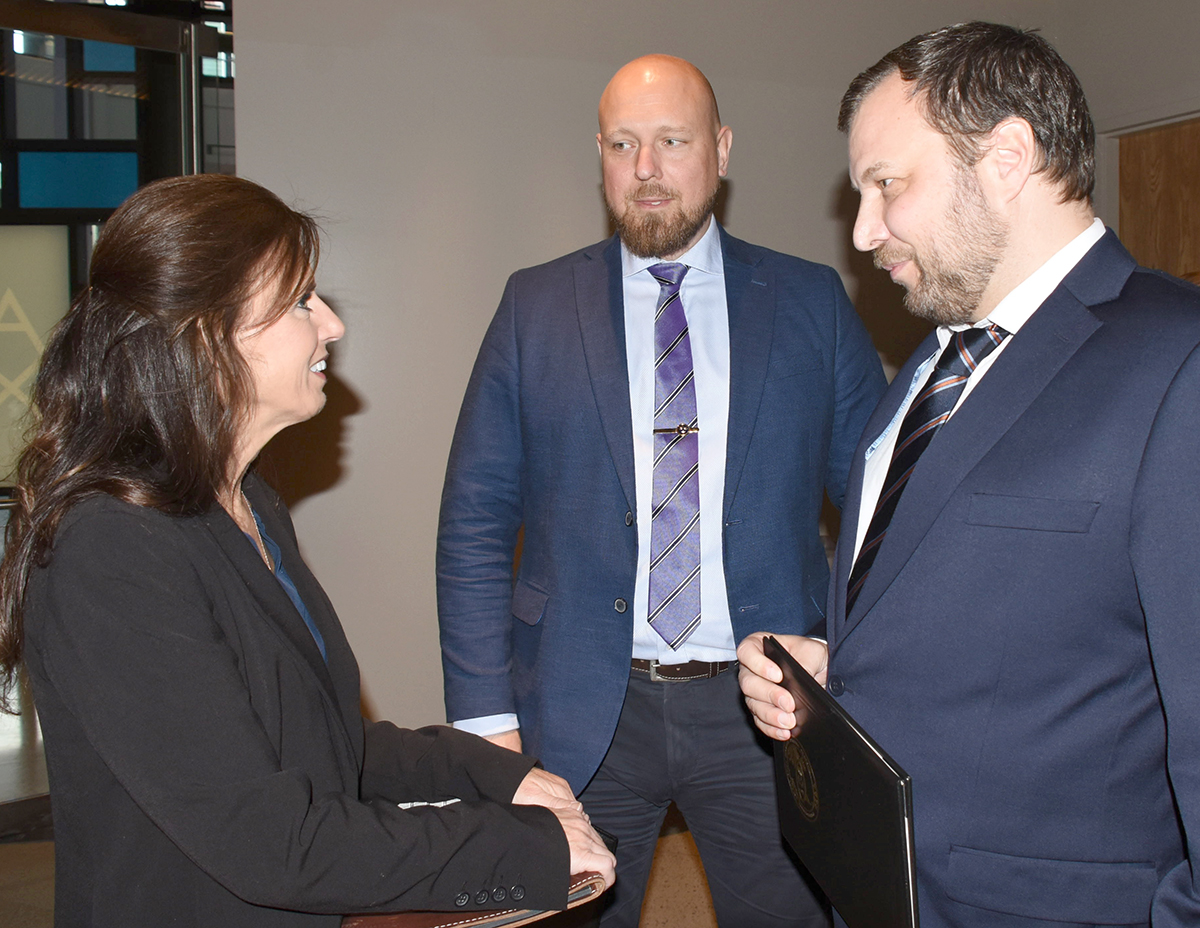Academy partners with MCC to train latent print examiners
 “MCC is a tremendous college, and we’ve been fortunate to partner with MCC to host
the academy.”
“MCC is a tremendous college, and we’ve been fortunate to partner with MCC to host
the academy.”
Matt Marvin, academy director with Ron Smith & Associates (RS&A), an international leader in forensic training and consultation, described the organization's partnership with the College when RS&A International Latent Print Examiner Training Academy hosted its sixth graduation celebration.
Latent prints are created when substances such as sweat, oil, or other material reproduce the ridge structure of the fingerprints on any surface a person has touched. Though the prints can’t be seen, they can be made visible using dark powder, lasers or other light sources. Also known as fingerprint experts, latent print examiners have the training, experience, and ability to examine the evidence, come to a correct conclusion and present their findings in court.
What also makes RS&A unique is that students are intensively trained learning the history, principles, and application of latent fingerprint examination - a consolidation of efforts that would take a case working examiner about two years to complete.
The five-month academy is held in the MCC-Riley Workforce Development Center, where there are classrooms, computer labs, and break rooms for the academy’s use.
The partnership is a point of pride, said MCC President Dr. Thomas Huebner.
“I walk through that facility regularly with VIPs or donors who come to the college who want to see what we do,” Dr. Huebner said, noting he stops where the RS&A personnel conduct classes and briefly explains the work that is done there. His audience’s reaction: “Wow! That is incredible,” he said.
In his talk to the graduates and audience, Dr. Huebner added, “At MCC, we’re a place where people from all over come to learn something that is fundamentally important; that absolutely meets a prevailing need in law enforcement in the United States – in the world. And you’ve got to be a part of it.”

